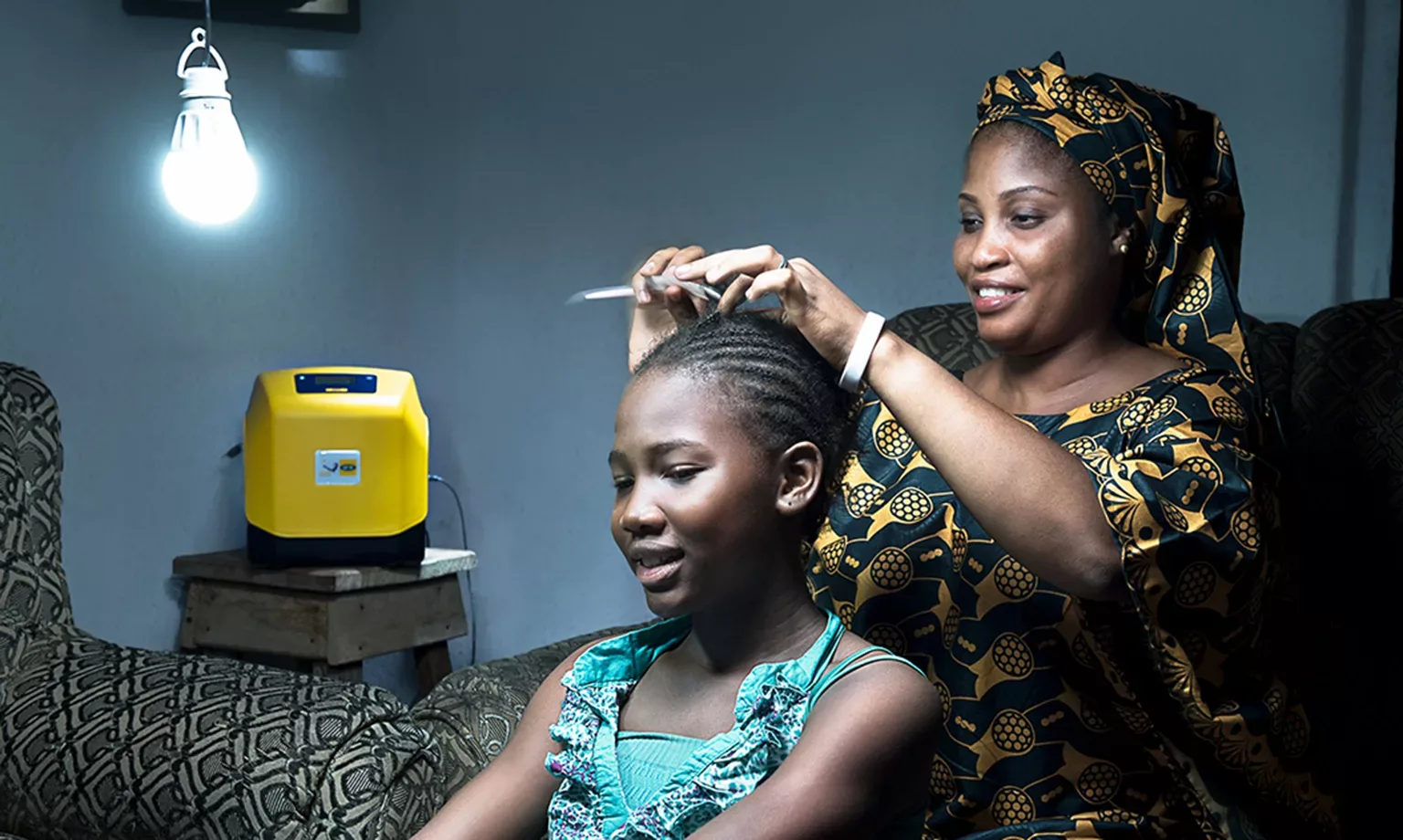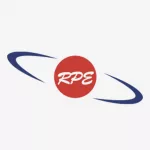The Rural Electrification Agency is on a mission to bring power to disadvantaged and remote communities in Nigeria. CEO, Abba Abubakar Aliyu, sheds light on the economic benefits of connecting the population.
EQUALISING ENERGY ACCESS
On Africa’s western coast, Nigeria, ranked as one of the continent’s energy titans, is struggling with chronic electricity shortages.
Indeed, approximately half of the country’s 200 million-strong population lacks access to the electrical grid, whilst many rural communities have no service at all.
The capacity to generate electricity is also insufficient to meet demand in Africa’s largest and most populous country, with ageing and poorly maintained infrastructure leading to frequent breakdowns.
However, Nigeria’s climate is primarily tropical, providing abundant sunlight and making it an ideal location for solar energy generation.
As well as solar, the country is endowed with other renewable energy resources, such as wind, hydro, and biomass, which it can harness to scale up its supply, however it requires a deliverable solution.
Thankfully, assistance is already underway in the shape of the Rural Electrification Agency (REA), which the Federal Government of Nigeria appointed under the Federal Ministry of Power.
The REA came into existence and was fully operational by 2006, following the initiation of the electricity market reform agenda with the advent of the National Electric Power Policy (NEPP) in 2001 and the Electric Power Sector Reform Act (EPSRA) in 2005.
With a workforce of around 200 public servants across the agency’s headquarters and six geopolitical zonal offices, plus several embedded consultants to aid the development of organisational capabilities on key projects and initiatives, the REA is in a prime position to improve millions of Nigerians’ access to electricity.
“We are saddled with the responsibility of increasing electricity access to the rural, underserved, and unserved communities in Nigeria,” opens Abba Abubakar Aliyu, CEO of the REA.
This mandate is implemented through the various 14 programmes at the REA, which includes the Capital Projects, Rural Electrification Fund (REF), Nigeria Electrification Project (NEP), and Energizing Education Programme (EEP), among others.
“Traditionally, the REA’s original mandate was undertaking grid extension projects to connect last-mile customers. However, with the operationalisation of REF Call projects and the NEP, the focus has shifted to private sector-led electrification models utilising distributed energy resources (DERs), mostly solar mini-grids and stand-alone systems, while promoting public-private partnerships (PPPs),” Aliyu sets out.
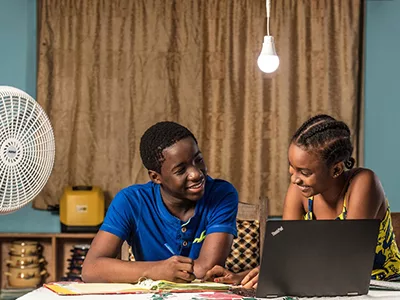

ENSURING ACCESS TO ENERGY
To ensure optimum results, the REA is achieving its mandate by fulfilling the immense task of universal electricity access under the guidance of the Rural Electrification Strategy and Implementation Plan (RESIP).
“The RESIP was developed in line with the federal government’s plan for rural electrification by 2016 and provides an execution framework and measures for driving access to energy across Nigeria through on-grid and off-grid solutions,” states Aliyu.
The national goal is to increase access to electricity by 75 percent and 90 percent by 2020 and 2030, respectively, with renewable energy contributing at least 10 percent to the mix by 2025 as outlined in the NEPP of 2001 and the Rural Electrification Policy (REP) of 2005.
“We are currently reviewing the RESIP and our electrification targets in congruence with the lofty ambition of universal access by 2030 in line with the “double down, triple up” mantra popularised at COP28, which calls for a tripling of renewable energy deployment around the world,” he affirms.
The REA is implementing electrification initiatives through grid extension projects and solar infrastructure such as isolated and interconnected hybrid mini-grids, stand-alone systems, captive power plants, and energy-efficient productive use equipment (PUE).
“Adopting the Results Based Framework (RBF) in pushing for the completion and sustainability of projects has proven successful in guaranteeing delivery along with the best outcome,” Aliyu notes.
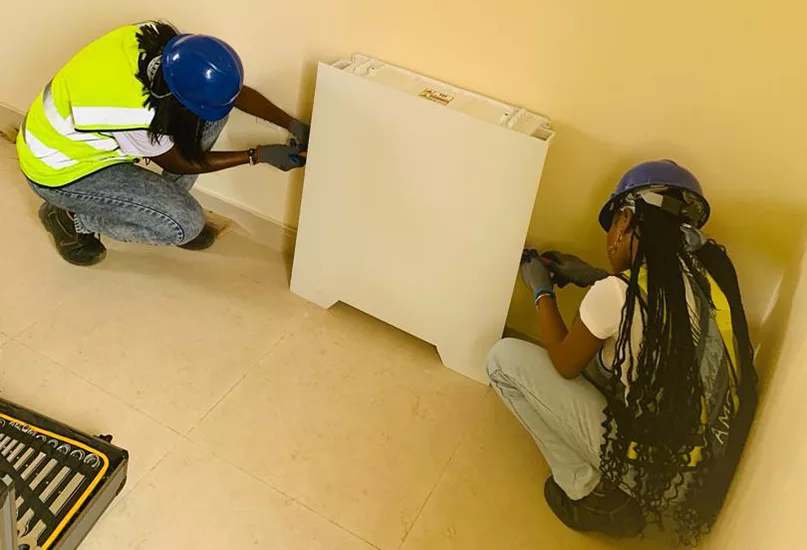
AGENCY IDENTITY
The REA has not only outlined its comprehensive plan for rural electrification but is also introducing a new approach to its role in Nigeria.
This strategic shift is being accompanied by a rebranding initiative aimed at enhancing the agency’s effectiveness and impact across the country.
“Our rebranding efforts are encapsulated by two key phrases: scaling up and opening up. The former signifies the REA’s renewed ambition to enhance all aspects of business and operations, from core electrification initiatives to organisational culture, taking everything to a significantly higher level and amplifying its impacts accordingly.
“Our desire to support the development of utility-scale renewable energy service companies (RESCOs), for example, is a crucial tenet of the scaling-up ethos. “Opening up reflects the REA’s commitment to transparency and openness; we believe that our mission of achieving universal access should involve everyone given its critical importance to national development,” clarifies Aliyu.
By embracing transparency, the REA actively encourages greater public scrutiny and engagement, aiming to build trust, foster collaboration, and drive innovation, ultimately amplifying the effectiveness of its initiatives.
Consequently, the REA is dedicated to providing the public with regular progress reports, which offer valuable insight into the agency’s efforts to fulfil the universal electricity access mandate.
EMPOWERING INDUSTRIES
Aliyu is a passionate advocate for the vital importance of reliable electricity access in every community.
He equates this access to the lifeline that powers every sector of society, breathing life into the economy and driving overall prosperity.
“The REA has significantly impacted the lives of Nigerian people in rural, underserved, and unserved areas by increasing access to reliable and sustainable electricity. Through our various initiatives, communities have been transformed through these energy services, enhancing living standards and boosting economic growth.
“For example, enhanced electricity services for over 260 healthcare centres powered by solar energy nationwide have impacted more than 89,000 maternity patients with a 65 percent increase in outpatient care recorded,” he reports.
Healthcare isn’t the only sector that the REA has improved; stand-alone solar systems powering agricultural equipment for irrigation has benefitted over 5,000 farmers nationwide, significantly boosting productivity, as well as over 18,000 micro, small, and medium-sized enterprises (MSMEs).
“We have substantially contributed to economic growth through our targeted interventions, particularly within the agricultural value chain. We have installed over 600 kilowatts (kW) of solar systems in agricultural clusters and deployed 1,000 solar irrigation pumps, enabling the decommissioning of approximately 60 diesel generators,” Aliyu emphasises.
By reducing reliance on costly and polluting machinery, the REA has lowered expenses and increased the efficiency of agricultural activities. This transition to sustainable energy sources has not only improved the livelihoods of farmers but also promises to stimulate broader economic growth, fostering a more prosperous agricultural sector.
Equally, more than 828,000 students will soon experience the advantages of enhanced electricity services from projects soon to be commissioned by the EEP.
In addition, 480 female STEM students stand to gain from specialised training on renewable energy throughout the project delivery timeline.
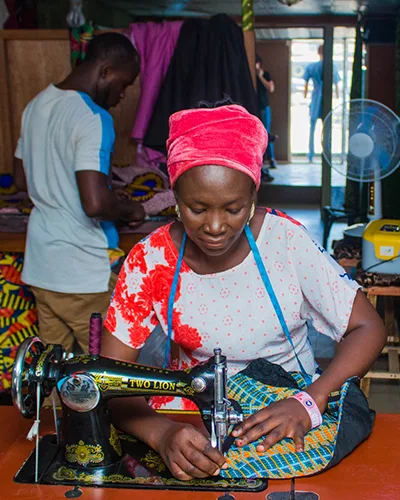
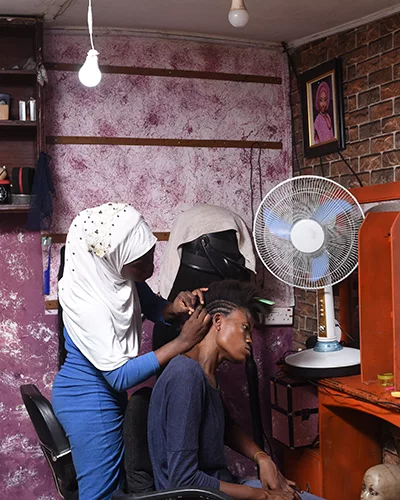
INCREASING STANDARDS
By virtue of its programmes, the REA is a huge off-taker of renewable energy solutions and products, whether directly or indirectly. As such, its role in facilitating the development of the renewable energy sector as a whole is vital.
However, the promotion of competition in the electricity market falls under the jurisdiction of the Nigeria Electricity Regulatory Commission (NERC).
“Within the scope of the REA, our deliverables include implementing higher technical standards for projects, which is crucial for boosting confidence in the market and driving the adoption of renewable energy technologies (RETs), consequently increasing demand for high-quality products.
“We have made exceptional progress as we scale up our PPPs to support this drive,” Aliyu expands.
It is crucial to adopt a proper RBF to provide grants to developers for distributed energy resource delivery models such as mini-grids.
“We have also experienced great success with the NEP as the grant framework provided has resulted in the development of the mini-grid market in the country, with over 150 mini-grids fully functioning and more in the pipeline,” he says optimistically.
Additionally, enabling developers to access capital in the off-grid space is paramount. This involves providing technical assistance to companies with the necessary expertise to execute renewable energy projects and supporting institutional competence in structuring business models conducive to scaling up activities.
These measures promote competition and foster a robust ecosystem for renewable energy development, aligning with broader national objectives of sustainable energy access and economic growth.
PROJECT DEVELOPMENT
The REA is about to commission Phase II of its EEP, a federal government initiative to enhance electricity supply to national educational institutions with solar hybrid captive power plants.
“Under Phase II of the EEP, seven federal universities and two teaching hospitals will benefit from these power plants with a total capacity of 32 megawatts (MW). This is expected to assist over 301,600 students, 80,000 teaching staff, and 1,000 medical staff with clean and consistent electricity,” prides Aliyu.
In addition to the direct benefits of an enhanced electricity supply, these projects will contribute to empowering and building the capacity of Nigeria’s youth.
“As part of the initiative, 700 students will undertake renewable energy courses at the Renewable Energy Training Centre, while 140 female students will receive STEM training during plant construction, further nurturing skills development and gender equality in education under Phase II of the EEP,” he enthuses.
In terms of its project pipeline, the REA is engaging the aviation sector to provide technical assistance in a decarbonisation strategy while leveraging the success of the EEP to design specific interventions to decarbonise Nigerian airports.
“We are currently participating in pre-development activities to de-escalate the risk potential of interconnected mini-grid projects at 40 pilot sites as part of the Distributed Access through Renewable Energy Scale-Up (DARES) project. The World Bank is supporting this effort, bringing the Rocky Mountain Institute on board to provide technical assistance,” Aliyu discloses.
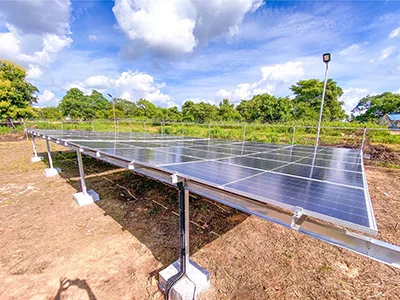
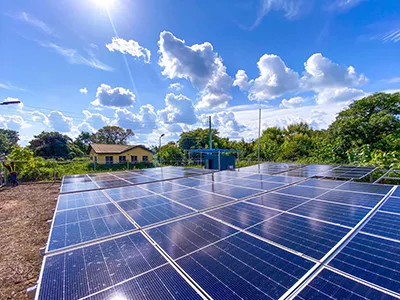
FUNDING THE FUTURE
Traditionally, the federal government funds many of the REA’s initiatives, particularly grid extension projects.
With its programmatic interventions, however, the agency has largely moved from project-by-project contracting to a more sectoral approach.
This includes collaborating with respective stakeholders across different sectors, including education, health, agriculture, entrepreneurial, and aviation.
“Through NEP and REF projects, we have provided catalytic grants to project developers, which have successfully mobilised private capital to support the country’s electrification initiatives. This has primarily been with aid from donors, partners, bilateral relationships, and development finance institutions (DFIs) such as the World Bank and the African Development Bank (ADB),” informs Aliyu.
The REA grants have attracted additional private-sector funding of over USD$190 million. It has also received other types of support through technical assistance for projects in the form of in-kind grants that have achieved high-impact results.
“The Korea Institute for Advancement of Technology (KIAT), with the support of the Korean government, the European Union (EU), the Deutsche Gesellschaft für Internationale Zusammenarbeit (GIZ), and the USAID Power Africa (PA) programme, have all helped the REA in this regard,” Aliyu reveals.
A key priority for the REA is to complete high-impact initiatives that are currently ongoing, which include commissioning Phase II of the EEP and launching DARES.
“The EEP Phase II projects are at the final stages of construction, and we plan to commission them by Q3 and Q4 of 2024.”
The DARES project, which succeeds the achievements of the NEP, is set to launch this year with a USD$750 million facility from the World Bank.
“This project will provide grants for solar hybrid mini-grids and stand-alone solar systems through a results-based framework and is expected to attract additional funding of over USD$1 billion into the Nigerian renewable energy sector,” concludes Aliyu.
Indeed, the REA is enthusiastic about these two specific activities and is increasing its efforts accordingly.
Continuing the commitment to accelerating energy access will result in Aliyu and his team improving lives across Nigeria.



